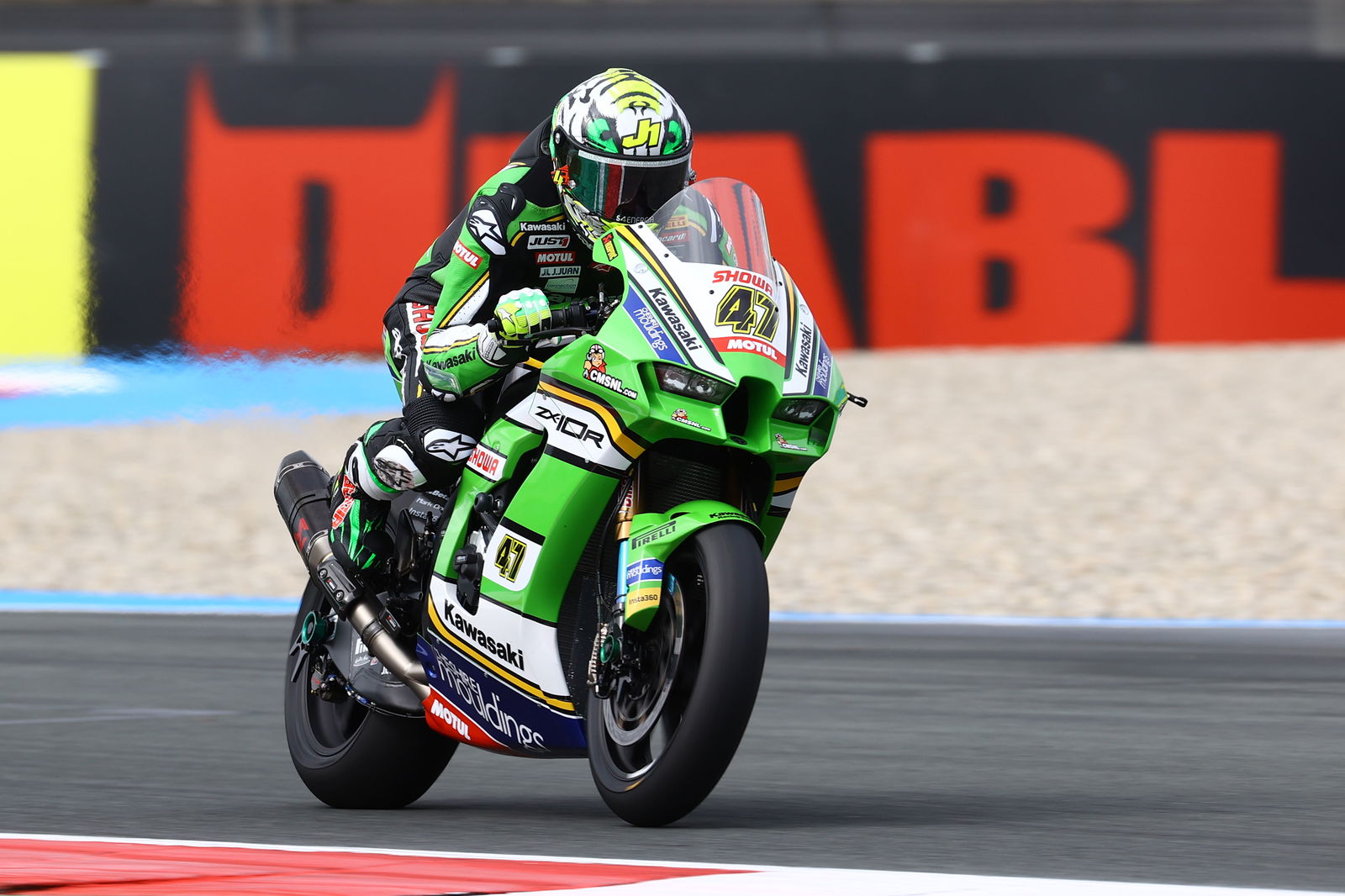The endurance racing solution that could fix WorldSBK
WorldSBK is currently being dominated by one manufacturer. What is the solution, and does it lie in the world of sports car racing?
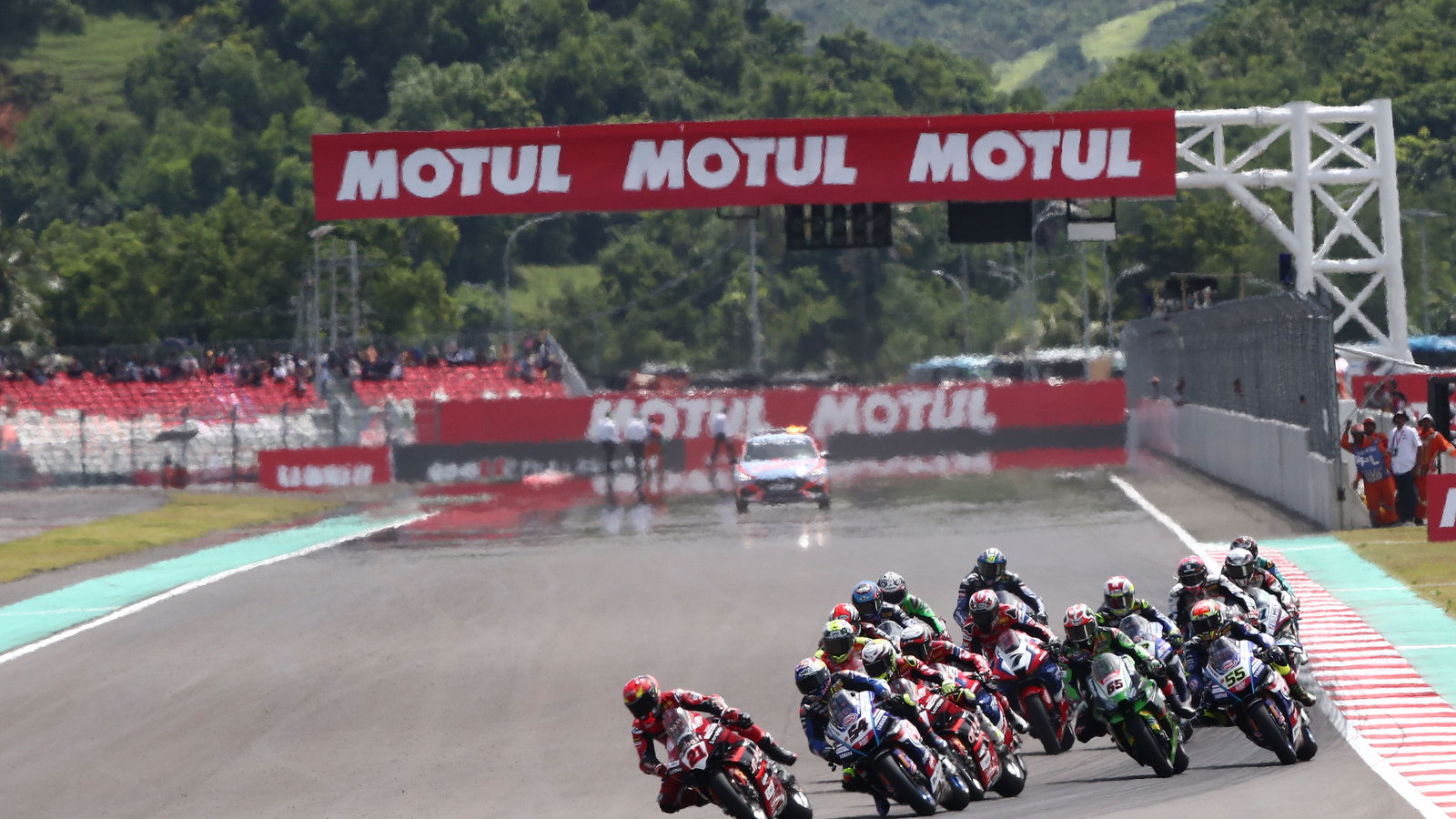
Two rounds into WorldSBK 2023 and a few things have been made clear. The championship has many strong points, but also some significant areas where it needs to improve, and currently exists in a two-tiered reality.
Formula One is a strange place to start when talking about WorldSBK, but anyone unfortunate enough to watch last Sunday’s Bahrain Grand Prix - which turned into a generation of false excitement over a 41-year-old man finishing third and almost 40 seconds behind the leader - will probably agree that F1 is in for quite the snoozer of a season, having just had quite the snoozer of a season.
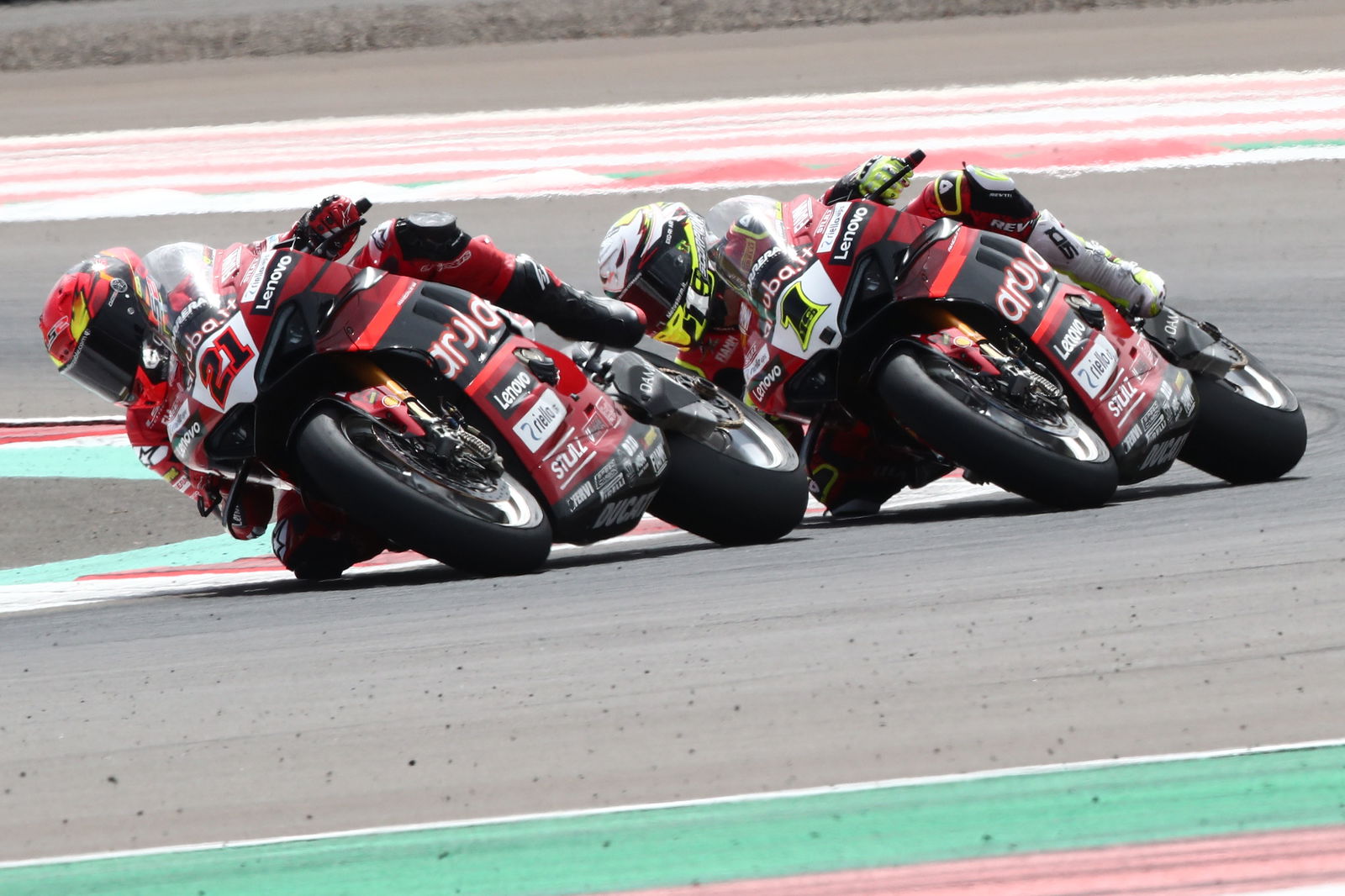
WorldSBK’s 2022 season was not entirely a borefest, but let’s be real: once Alvaro Bautista completed three demolitions of the competition in Barcelona last September the championship fight was basically over.
In F1, the title fight was over much sooner, in May - but also in Barcelona - when Charles Leclerc’s Ferrari broke while leading, and Max Verstappen won - despite skating into the gravel trap in the first half of the race - thanks to some team orders from Red Bull.
If we look back to just over one week ago, when WorldSBK was in Phillip Island to start the season, we can find that Alvaro Bautista won all three races in convincing fashion, especially the second long race which saw Ducati take a 1-2 finish with Michael Ruben Rinaldi backing up his Spanish teammate.
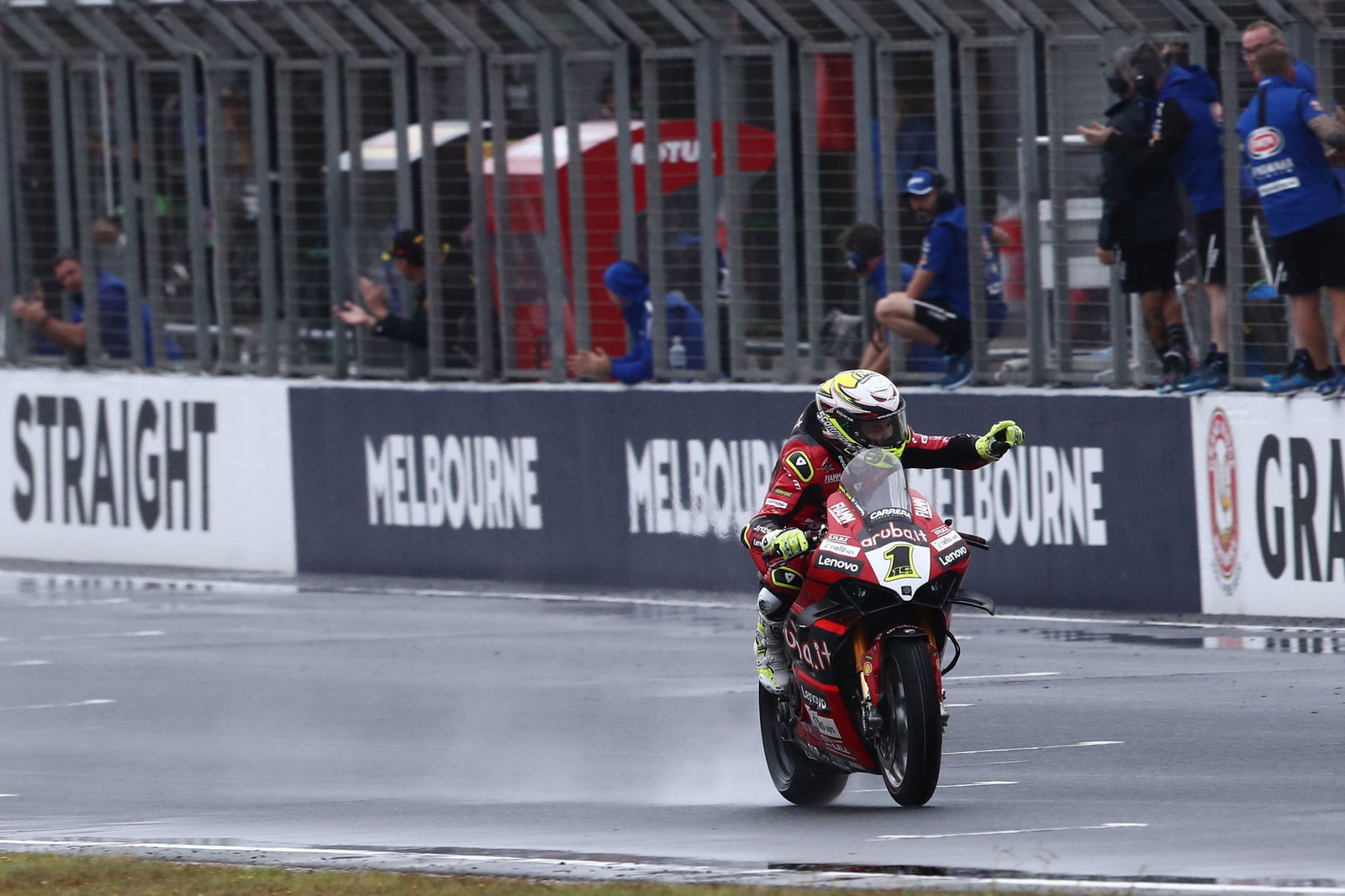
Sure, Jonathan Rea might have been able to challenge Bautista in the first, wet, race, but in reality he had to change gear manually due to an electronics issue which broke his quickshifter. Either way, in the dry, Bautista was peerless.
That, mostly, mirrors F1 in Bahrain, where Max Verstappen was able to take one of the most commanding victories of his career, .
In WorldSBK, as in F1, leaving the first round there was little hope that the champion of 2022 would be able to be realistically challenged in 2023.
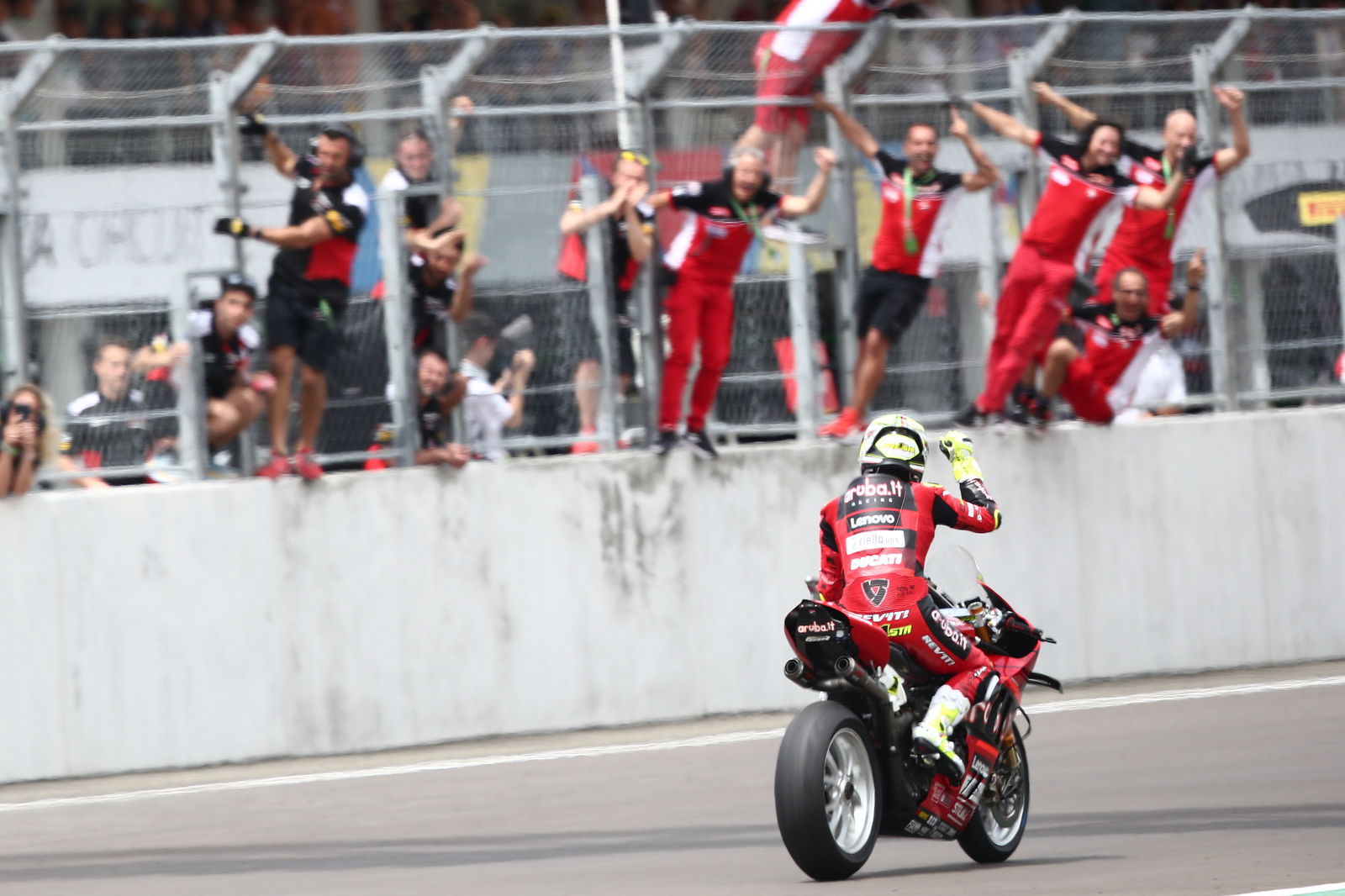
But, what about the second round? Well, it doesn’t look better. Sure, 2021 World Champion Toprak Razgatlioglu was able to take his first win of the season, but it is also true that the only race Bautista and Ducati have not won in 2023 is the only one that Bautista has not finished. Unfortunately for Razgatlioglu, this was the Superpole Race in Indonesia, meaning he only got half-points for his win, rather than a full 25.
The cruelty of the situation, from the fans’ perspective, in both WorldSBK and F1, is that in 2021 both series proved they have the capacity to provide great action and a great fight for the championship over the course of a whole racing season. But, whereas F1 is very limited in its ability to peg back Red Bull in 2023 - just as it was with Red Bull in 2011-2013, or with Mercedes between 2014 and 2020, or in countless other scenarios - WorldSBK could have a solution.
Is the solution revolutionary? No, of course not. Is the solution perfect? Same answer. But, it could benefit the racing, and make WorldSBK a more entertaining product.
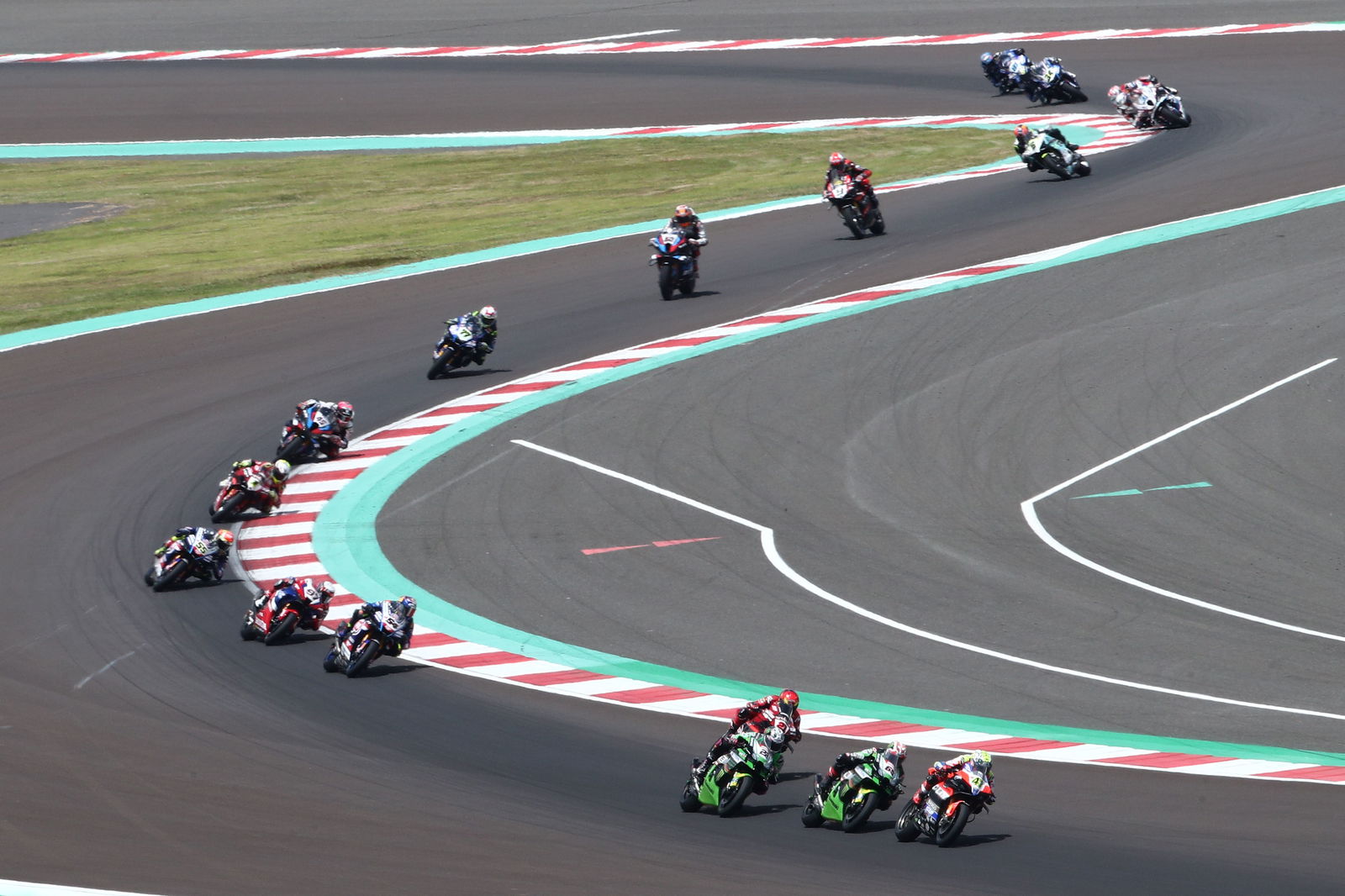
The solution is Balance of Performance (BoP). It might seem as if WorldSBK has already introduced a BoP-style system, with its rev limit. However, this system only updates every three races, often doesn’t change at all, and clearly does not work in it current guise, since one bike is dominating.
Additionally - and this is quite understandable - the organisers are too concerned with penalising dominant riders to update the rev limits of each bike, worried that they are handing unfair penalties. This is fair enough, and Michael Ruben Rinaldi has not shown at one point of any of the six races so far in 2023 that he is capable of winning, but he has shown that he is capable of beating all of the non-Ducati riders, like he did in the Phillip Island Superpole Race, with some comfort in Phillip Island Race 2, and like he should have done in Race 1 and Race 2 in Indonesia.
WorldSBK’s current system is failing also from another perspective, which is that Kawasaki had their revs cut years ago, have struggled in the meantime, and still have not got those revs back, despite both factory riders struggling to be even in the top 10 on multiple occasions in 2023.
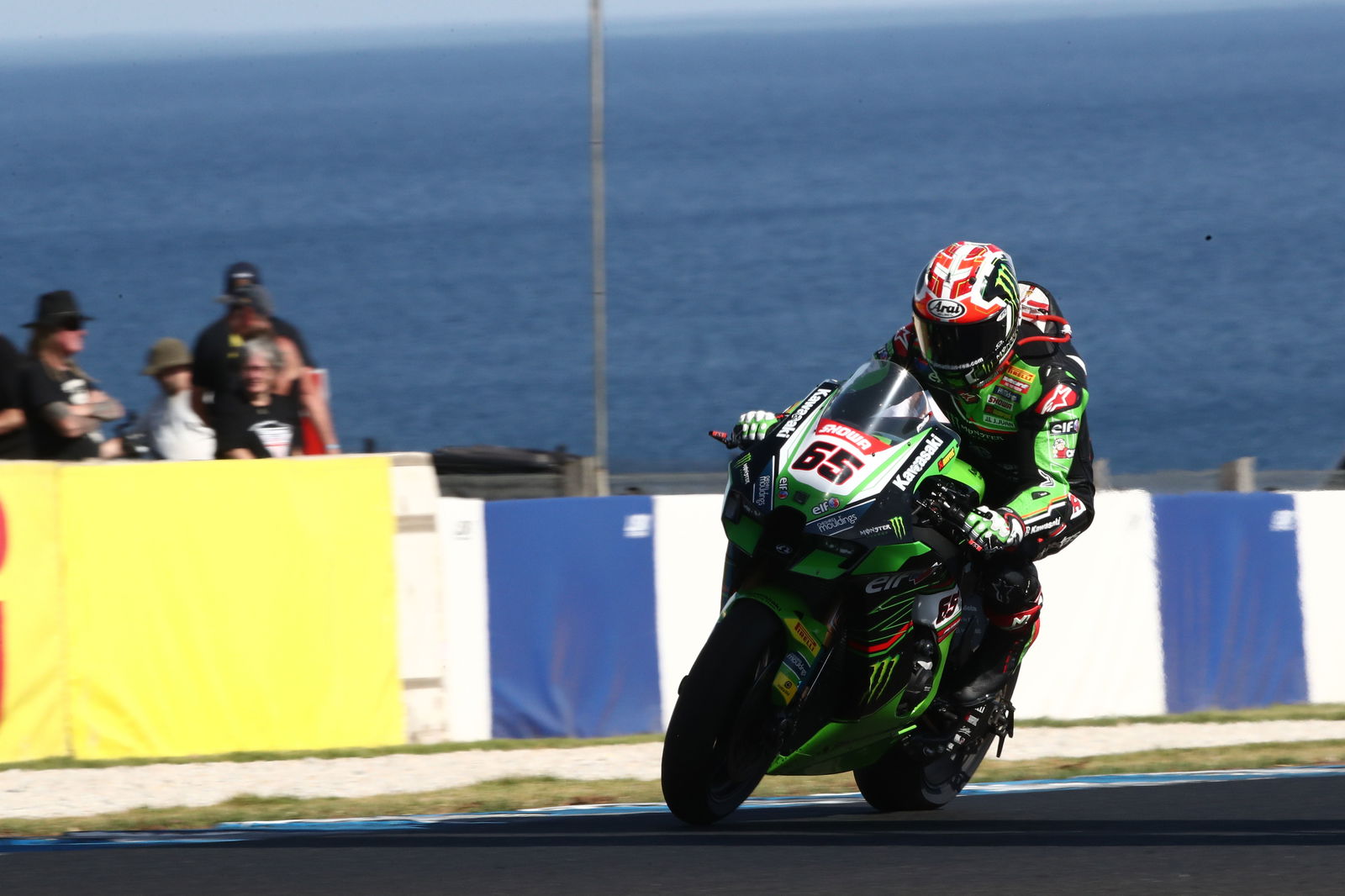
(This also leads to the point that Kawasaki uses its tyres more because it has to extract more performance from them to make up for the performance it is missing from the bike. In comparison, Ducati has an abundance of performance, so its riders can take better care of the tyres, and the master of this is Bautista.)
Sports car racing fans will be familiar with the concept of BoP, and in essence it means that, on a track-by-track basis, the performance of cars in the same class can be balanced against each other to ensure they are able to be in genuine competition with each other.
Does that mean that every race is decided by 0.001 seconds? No. But, BoP does mean that each manufacturer is working from the same performance base - or, it does when it is calculated correctly.
The reason BoP works in endurance racing, particularly in the GT3 and GTE categories, is that the cars in these classes are based on production models.
A road-going MW M4 is not going to lap any circuit within one second (either faster or slower) of a Ferrari 296. And these cars should not be expected to have similar pace over a lap. A top-of-the-range BMW M4 costs around £93,000, whereas a Ferrari 296 costs around £150,000 more than that.
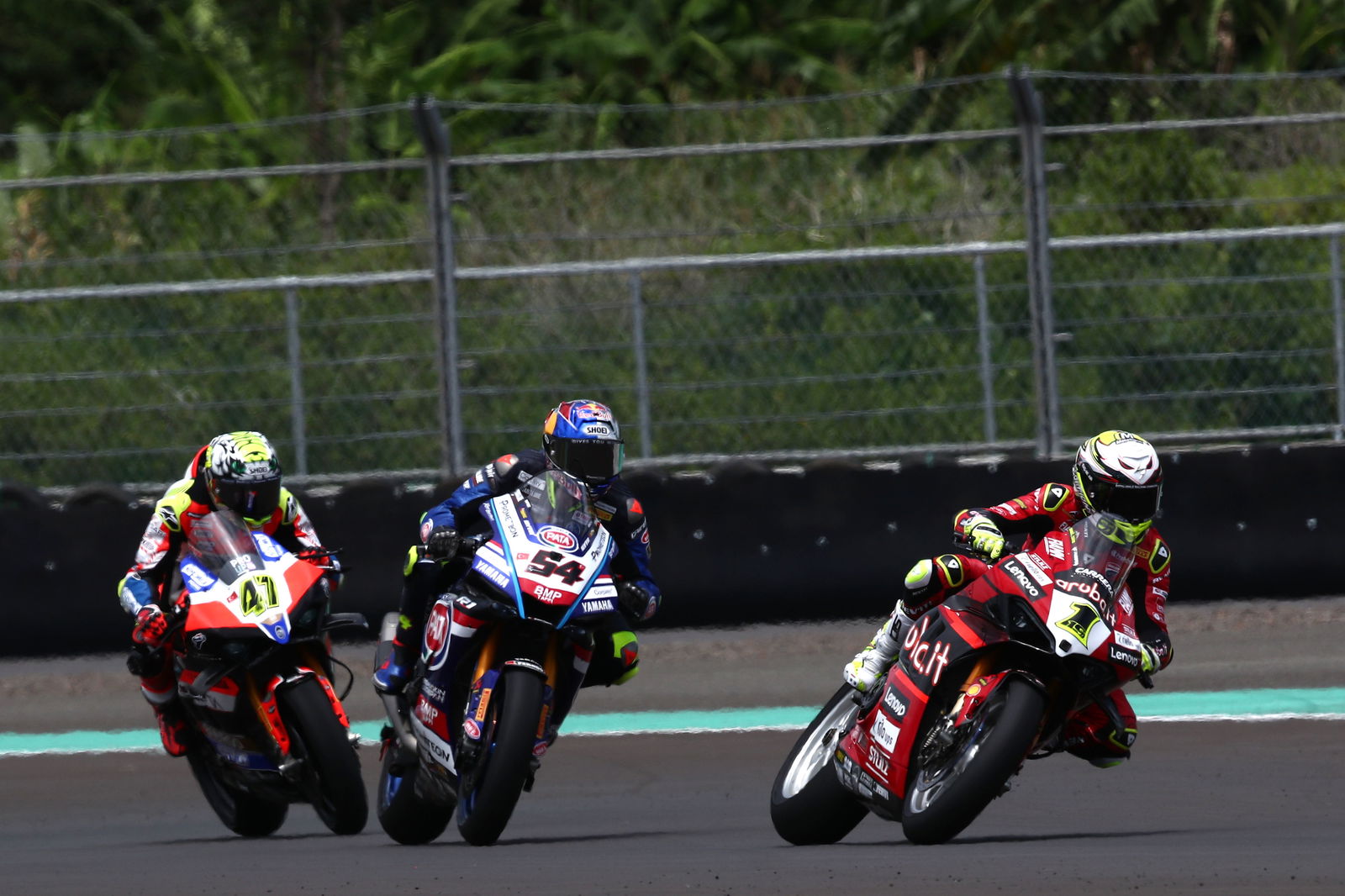
In WorldSBK, the Ducati Panigale V4 R is the Ferrari 296, and the BMW represents basically everything else on the WSBK grid.
Below is a list of prices for the road-going versions of the bikes which compete in WorldSBK in 2023:
- Ducati Panigale V4 R - £38,995
- Yamaha R1M - £24,450
- Kawasaki ZX-10RR - £25,429
- BMW M 1000 RR - £30,940
- Honda CBR1000RR-R Fireblade SP - £23,499
Generally speaking, then, £25,000 is about what a road-going WorldSBK derivative would cost. But the Ducati is far more expensive than that, which means its performance is higher. Money does not equal performance exactly, as BMW are evidently proving with their M 1000 RR, but Ducati’s Panigale V4 R is essentially as close as you can get to a road-going MotoGP bike, so of course it is going to cost more, and of course that is why it produces 240 horsepower, rather than the 210-to-220-or-so that the others produce in production form.
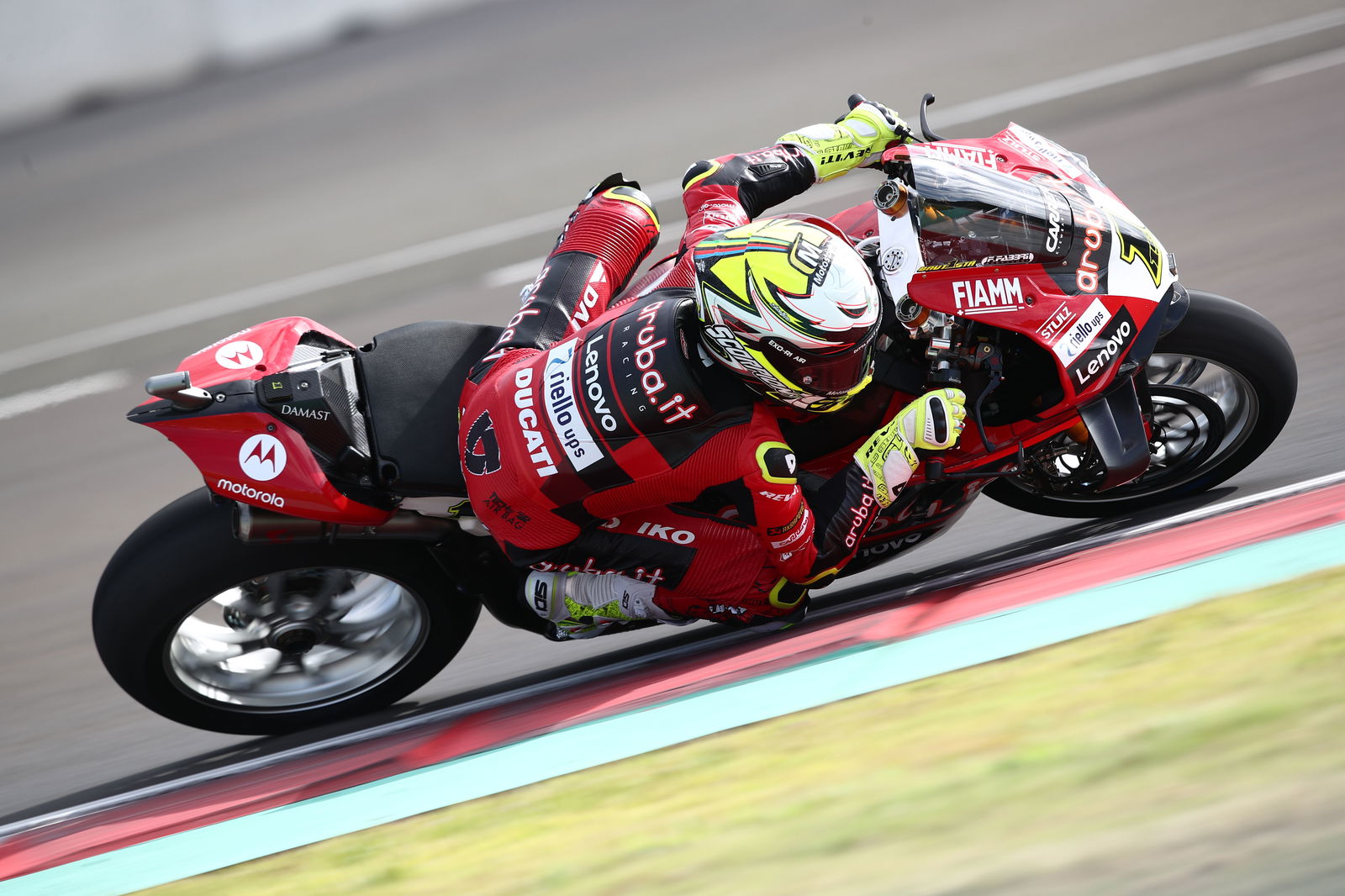
The reality is that Ducati are playing a different game to everyone else. They have decided they want to win the World Superbike Championship, and have therefore decided to take a massive financial hit by building road-going MotoGP bikes in order to compete in that series. The other manufacturers take a different path, which is that they want to sell road bikes, and WorldSBK is a good advertisement platform for those road bikes.
Introducing a BoP-like system would mean that manufacturers could enter more-or-less whatever motorcycle they wanted to, as long as it adhered to the technical regulations, and it would theoretically be able to be competitive in more-or-less every circuit.
The alternative is for WorldSBK commercial rights owners Dorna to essentially demand Yamaha, Kawasaki, BMW, and Honda build £40,000 supersports bikes which match the performance of the Ducati, which would seem to be a good way to lose four of your five manufacturers. Otherwise, they would have done it already. Why haven’t they? They don’t think WorldSBK is worth that much money.
The reason the other manufacturers do not make £40,000 supersports bikes is because they do not see it as a viable option from a financial or business perspective. Ducati does see it as viable, because it sees racing as a way to sell all of its bikes, not just its sports bikes, so it thinks it can recover the money it loses building these road-going Grand Prix bikes in Ducati Monster, Multistrada, or Scrambler sales, for example.
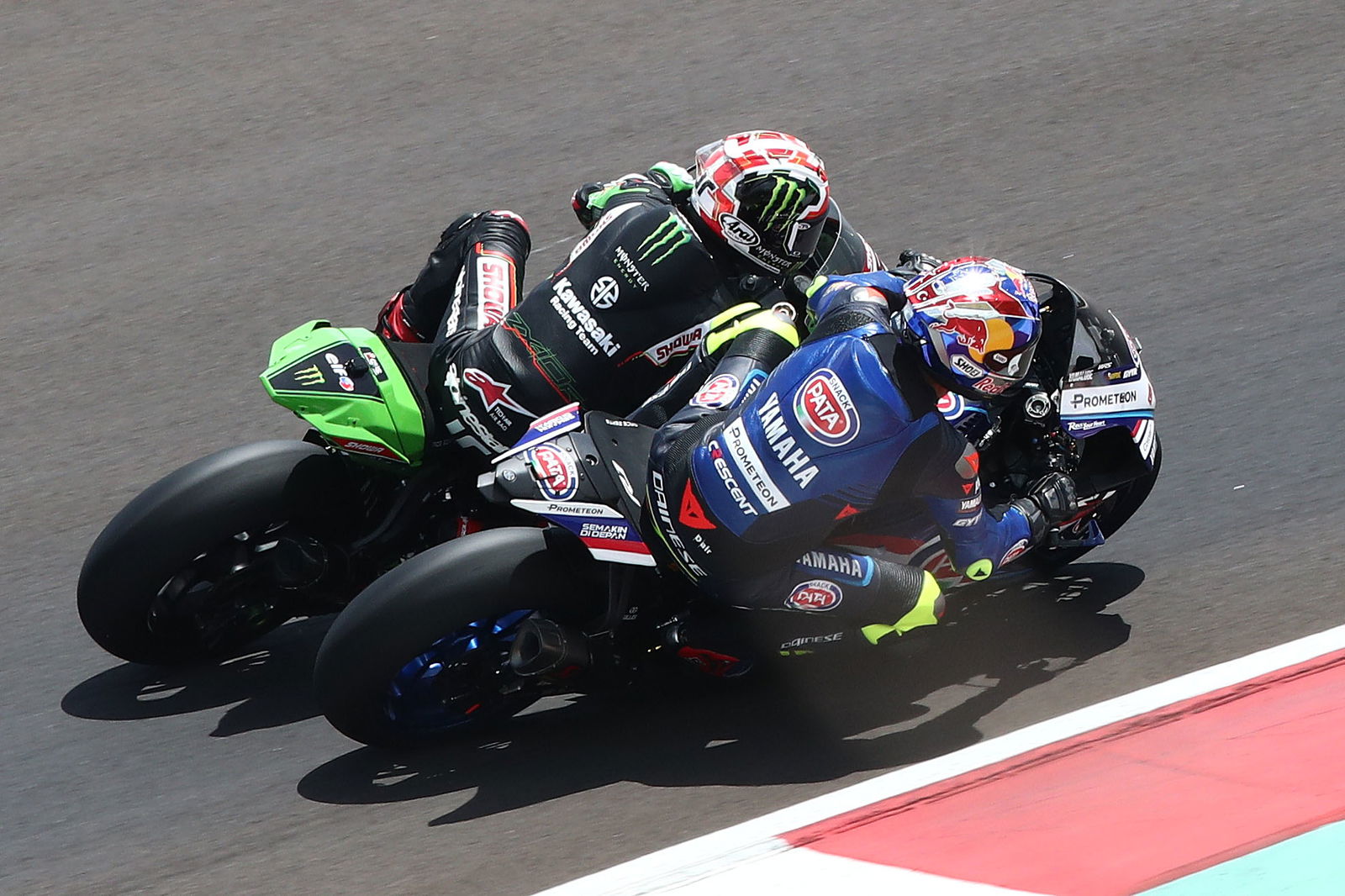
WorldSBK is therefore in a complicated situation. Until now, pretty much, it has been able to create good racing with motorcycles adhering to technical regulations but without having to directly balance the performance of those motorcycles. That has mostly been because the manufacturers involved have been producing comparable motorcycles, but the Ducati Panigale V4 R is pretty much incomparable to its competition in WorldSBK. Ducati has changed the game, and while it might seem harsh, in a production-derivative series game-changing which puts the competitors at a disadvantage pretty much has to be punished for the good of the series.
Therefore, WorldSBK's choice is relatively simple. It can 'punish' Ducati's success and have an exciting series with great racing, or it can have 'pure' racing which is generally quite dull.
